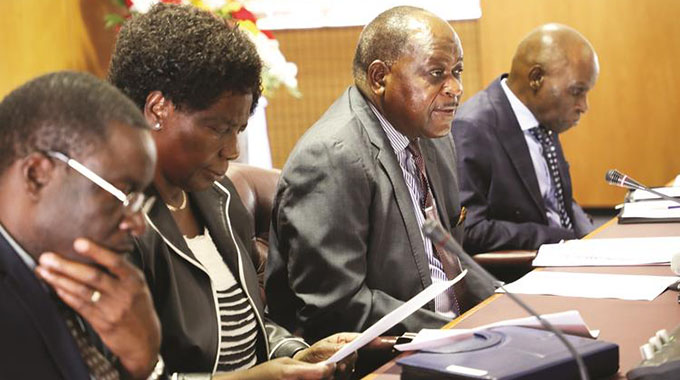JUST IN: New curriculum still needs content
Leroy Dzenga Features Writer
The resistance to a decision by Government to radically reface the country`s education system in 2016, made a messy of former Primary and Secondary Education Minister Lazarus Dokora`s last days in office.
While others criticised Government over the decision to modernise Zimbabwean education by adopting the new curriculum, others saw opportunities to grow.
It was a time for the critical and daring, the former debated to no end, while the latter were seized with finding ways to contribute to the nation`s educational repository and subsequently benefit.
One such person who belongs to the group of doers is Tawanda Ndhlela, a small time publisher who operates from a humble office in Harare`s Central Business District.
“I ventured into book publishing in 2016 with my business partner Alistine Chirume, when we launched Palm Publishing. We saw a gap in content for the new curriculum and we went for it.”
Academics from different universities across the country have been partnering with his company to produce books which are already finding their way into the country`s classrooms.
With modest equipment and a team of commissioned content gatekeepers, they have been slowly gaining their space in the educational sphere.
“So far we have five titles which were approved by the Ministry of Primary and Secondary Education, that is Computer Science Book One and Three, ICT grade 2. We also have Shangani Books for Grade Seven Revision,” said Ndhlela.
Book companies have been struggling to stay afloat lately and Palm Publishers have been trying to ensure they keep their costs proportional to demand.
“The market is fairly good; schools are interested in the materials and what is pleasing us is we have been approached by Snapplify, an eBook selling platform partnered by a local service provider. They want to sell our books across the continent. So we may have a widened market soon,” said Ndhlela.
“We are receiving material from different authors and we expect to venture into other levels and subject areas soon,” he said.
Their process of refining the books to make them fit for consumption is key in avoiding misinformation and should not be overlooked at any stage.
“First, we look at the topics covered and we give our editors to go through it. We then submit them to the Ministry of Higher and Tertiary Education`s Curriculum Development Unit for evaluation,” said Ndhlela.
Ndhlela, like many content creators and curators in Zimbabwe, feels Government must be strict in ensuring that they are not shortchanged through unsanctioned reproduction of their works.
“Government and parliament must enact strong laws that work. Soon the transition from the old to the new curriculum will be complete and we are afraid we will see counterfeit versions of our books in the streets,” said Ndhlela.
According to a recent critical skills audit by the Ministry of Higher and Tertiary Education, Science and Technology Development, Zimbabwe has about 96 percent literacy and 38 percent of critical skills needed for a country in the 21st century.
The new Primary and Secondary curriculum was one of the interventions structured to fix this anomaly from grassroots. Content creators are in great demand as the country seeks to redefine education through the new curriculum and a raft of other related measures.
If calibrated properly to projected needs, publishing can become a big industry in Zimbabwe once again.
Feedback: [email protected]










Comments